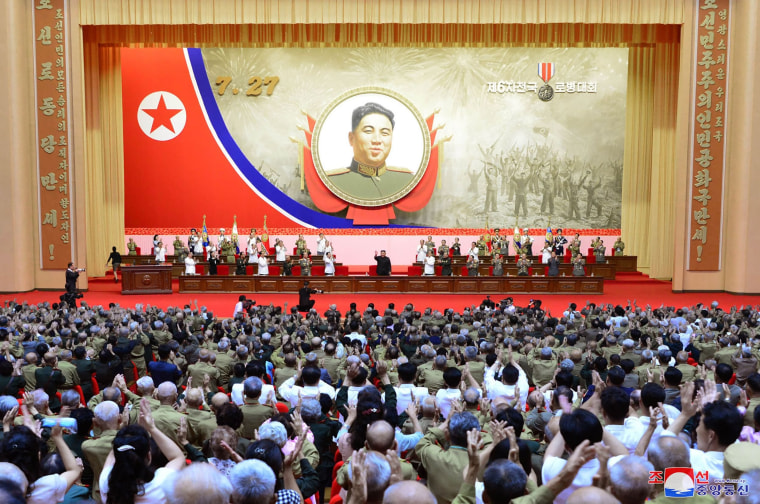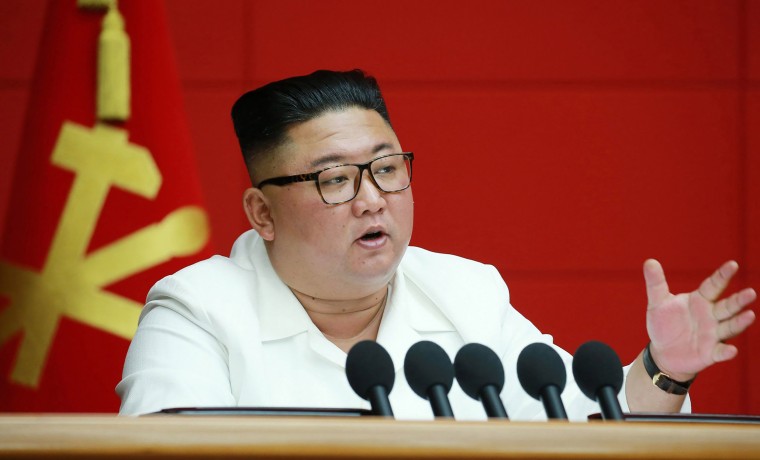SEOUL, South Korea (AP) — With unusual candor, North Korean leader Kim Jong Un acknowledged his plans to improve the country’s dismal economy aren't succeeding as his ruling party scheduled a rare congress in January to set development goals for the next five years.
The Workers’ Party said North Korea’s economy has “not improved in the face of the sustaining severe internal and external situations" — a reference to a triple blow of U.S.-led sanctions, the coronavirus pandemic and devastating floods — and that development goals have been “seriously delayed and the people’s living standard (has) not been improved remarkably.”
Kim announced his first five-year development plan with goals of improving North Korea’s power supply and agricultural and manufacturing production during the last Workers’ Party congress in 2016, its first in 36 years.
But at Wednesday's meeting of the party’s decision-making Central Committee, Kim acknowledged economic “shortcomings" caused by “unexpected and inevitable challenges in various aspects and the situation in the region surrounding the Korean Peninsula,” the North's official Korean Central News Agency reported Thursday.
Experts say the coronavirus derailed some of Kim’s major economic goals after North Korea imposed a lockdown that significantly reduced trade with China — its major ally and economic lifeline — and likely hampered its ability to mobilize its workforce.

In a closed-door briefing to South Korean lawmakers on Thursday, Seoul’s spy agency said the stress of managing state affairs had caused Kim to recently delegate some of his powers to a select group of senior officials, including his sister Kim Yo Jong, who is now chiefly involved in shaping policies toward Washington and Seoul.
Lawmaker Ha Tae-keung said officials from the National Intelligence Service, which has a mixed track record in reading developments in North Korea's secretive ruling elite, insisted that Kim Jong Un’s rule over his country remains absolute. There are no signs that Kim is experiencing health problems or is grooming his sister as his successor, Ha paraphrased NIS officials as saying.
Kim Byung-kee, another lawmaker who attended the briefing, said the NIS believes North Korea’s foreign currency reserves are being depleting rapidly because of prolonged border controls imposed under its anti-virus campaign which have led to cutbacks in construction and other activities.
The NIS did not confirm the lawmakers’ comments.
Last week, Kim Jong Un sacked his premier after an evaluation of the Cabinet’s performance in economic policies. He also said the country was facing a dual challenge of fending off COVID-19 and repairing damage from torrential rain that lashed the country in recent weeks, destroying thousands of homes and nearly 100,000 acres of crops. Kim insisted North Korea will keep its borders shut and reject any outside help.
“North Korea had originally planned to lavishly celebrate its economic achievements (from Kim’s first five-year plan) at the Oct. 10 celebration of the 75th anniversary of the party’s founding ... but couldn’t foresee the huge setbacks” caused by COVID-19 and floods, said Cheong Seong-Chang, a senior analyst at South Korea’s Sejong Institute.
While scheduling the new party congress for January likely reflects hope that the pandemic will ease by then, North Korea may struggle to fully revive cross-border trade, especially if its poor healthcare system continues to raise concern, Cheong said.
